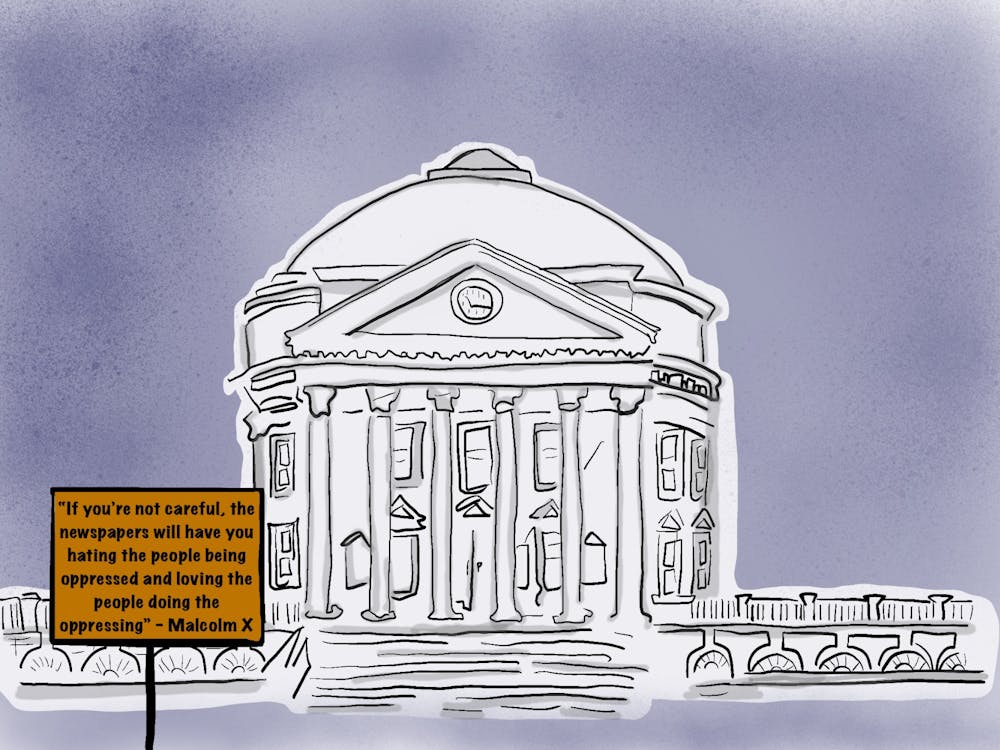Within a four-year margin, the imprisonment of women increased by 32 percent — a number higher than both the national average and that of men, who saw an increase of a mere four percent during the same window. In response, the American Civil Liberties Union of Virginia released a report detailing alarming trends in the Commonwealth’s imprisonment of women.The report attributed the shocking increase to the unique challenges women face within the criminal justice system, citing “a mix of substance abuse problems, over-prosecution of petty crimes and mental health issues rooted in trauma” as examples. According to the report, women are six times more likely than men to have been abused prior to incarceration and “often enter the criminal justice system through attempts to cope with poverty, abuse and drug addiction.” However, the most alarming finding of the report is that of motherhood — over 80 percent of incarcerated women in the Commonwealth are mothers who are typically “poor, young, unmarried and uneducated” with potential underlying issues and trauma.
Punishing women and children for the state’s lack of concern for mental health and drug addiction is absolutely revolting and demonstrates a clear and extensive need for change. Because of this, the Commonwealth needs to address its inadequate criminal justice system and handling of familial situations to halt the overly harsh prosecution and treatment of mothers in the system.
The increased incarceration of mothers in the state raises several concerns about the families these women are forced to abandon, along with why the criminal justice system is prosecuting and imprisoning them at such high rates. Several studies have demonstrated that in many ways, children share the sentence with their incarcerated parent — facing increased risks of “psychological and behavioral problems, insufficient sleep and poor nutrition and higher odds of entering the criminal justice system themselves.” Brittany Barnett, the founder of Girls Embracing Mothers, explains the devastation children experience when their mother is in the system, calling it a “primal wound” from which neither the children nor the mothers will likely ever recover from. Further, entering the system follows mothers and their children long after releases, where they are forced to reconcile the damage inflicted on their relationship in addition to any financial struggles, continued mental health issues and addictions.
Angela Antoine, a woman familiar with the system having served several sentences herself, now works for a re-entry program in the Hampton area as an advocate for the disproportionate incarceration and maltreatment of women in the Commonwealth. Through recollecting her time in jail, she details the dark and gruesome reality of incarceration for women in Virginia, explaining that it is not uncommon to see women asleep on the floor and in crowded cells due to overpopulation — and that many of these women have histories of mental illness. Antoine states that “a lot of those women have gone through poverty, domestic violence [and have] been molested,” going on to say that these are the issues that Virginia needs to acknowledge this unprecedented imprisonment of mothers.
To address these issues, Virginia’s criminal justice system must undergo substantial reconstruction. Solutions include a laundry list of systematic changes, such as eliminating the three-strikes policy, ceasing a cruel “war on drugs,” increasing accessibility to mental health resources, removing cash bail requirements and abolishing minimum sentences. Further, one of the most promising initiatives would be implementing family based treatments as an alternative to incarceration. These programs are community-centered and allow women to remain with their children and families while undergoing treatment for drug addiction and/or mental health issues. According to the ACLU, these treatment programs would provide the necessary stability and support to maximize successful and continued healing. Yet even with lower costs than traditional incarceration and much more promising outcomes, Virginia does not currently have any such treatment centers or programs in place.
Having firsthand knowledge with the system and its ability to destroy families, I am speaking from experience when I say these changes are absolutely vital. The damage that accompanies having a mother in the system is indescribable and unacceptable. No child should ever have to experience the soul-shattering pain accompanied with seeing the woman who used to flip their pancakes for breakfast walking across a room in chains and shackles. Yet, this is the unbearable reality for an overwhelming number of children in Virginia, and to think it could be prevented if only the state adequately addressed and treated underlying mental illness and substance abuse issues is disheartening to say the least. I, along with numerous others, often question the “what-ifs” and “maybes” of life without a mother in the system, but it has been and continues to be placed in the hands of a state that prefers mass incarceration to any real solutions or healing.
The Commonwealth cannot continue ignoring the trauma and systematic problems with placing women behind bars for petty offenses, drug charges and abuse related crimes — especially when children are involved. Considering the needs of a woman’s family should always be prioritized, leading us to community-based solutions as an alternative to prison. This would not only end the horrendous practice of creating more crime through further incarceration and positively affect recidivism rates, but it would also allow the state to focus on restorative efforts and give families the option of preservation rather than destruction. At last, the Commonwealth needs to reevaluate its commitment to families when prosecuting mothers and exhaust all alternatives to incarceration prior to resorting to lengthy and harsh prison sentences.
Hailey Yowell is an Opinion Editor for The Cavalier Daily. She can be reached at h.yowell@cavalierdaily.com
The opinions expressed in this column are not necessarily those of The Cavalier Daily. Columns represent the views of the authors alone.





